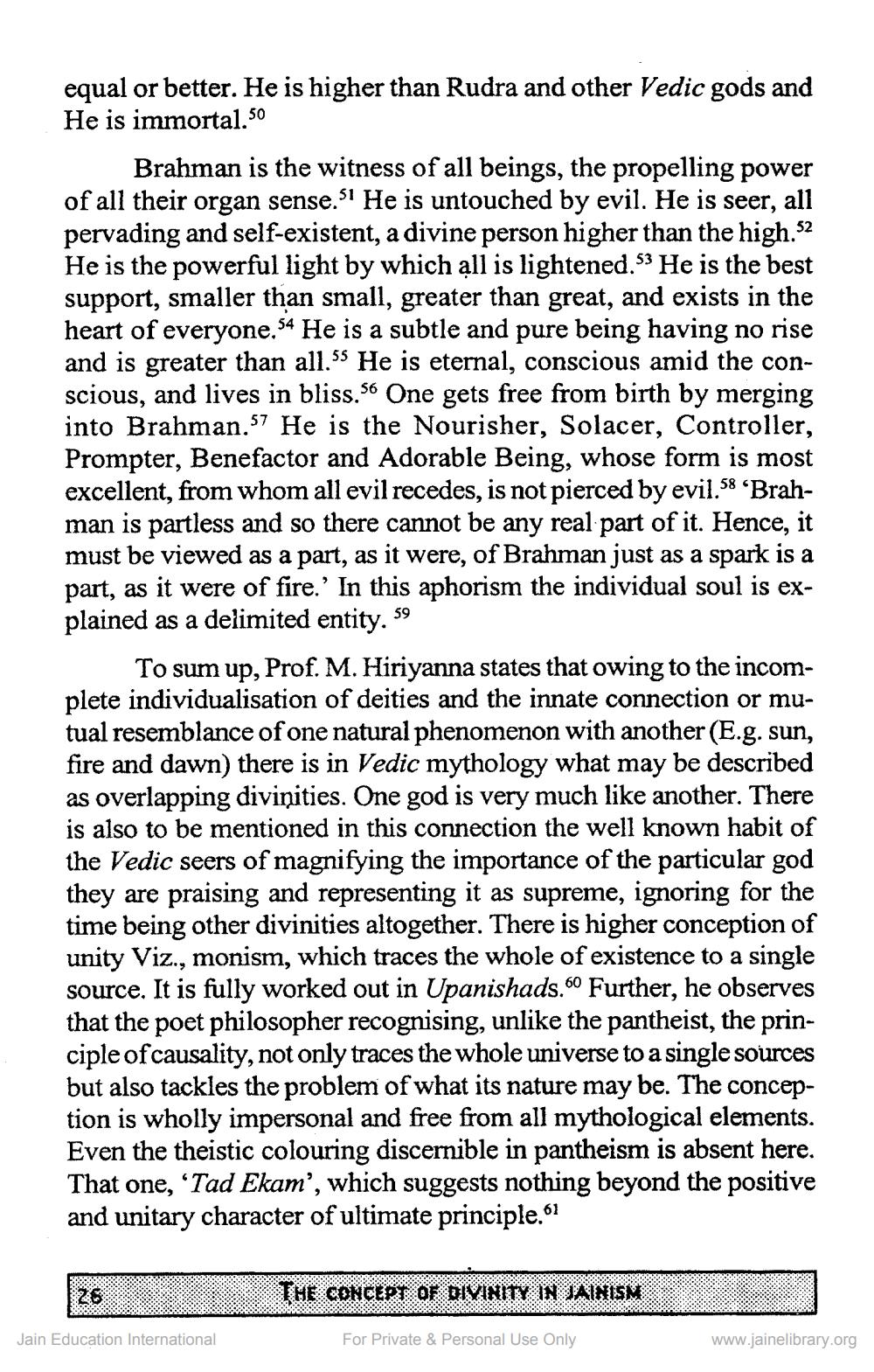________________
equal or better. He is higher than Rudra and other Vedic gods and He is immortal.50
Brahman is the witness of all beings, the propelling power of all their organ sense. S' He is untouched by evil. He is seer, all pervading and self-existent, a divine person higher than the high. 52 He is the powerful light by which all is lightened. 53 He is the best support, smaller than small, greater than great, and exists in the heart of everyone.54 He is a subtle and pure being having no rise and is greater than all.55 He is eternal, conscious amid the conscious, and lives in bliss. 56 One gets free from birth by merging into Brahman.57 He is the Nourisher, Solacer, Controller, Prompter, Benefactor and Adorable Being, whose form is most excellent, from whom all evil recedes, is not pierced by evil.58 'Brahman is partless and so there cannot be any real part of it. Hence, it must be viewed as a part, as it were, of Brahman just as a spark is a part, as it were of fire. In this aphorism the individual soul is explained as a delimited entity. 59
To sum up, Prof. M. Hiriyanna states that owing to the incomplete individualisation of deities and the innate connection or mutual resemblance of one natural phenomenon with another (E.g. sun, fire and dawn) there is in Vedic mythology what may be described as overlapping divinities. One god is very much like another. There is also to be mentioned in this connection the well known habit of the Vedic seers of magnifying the importance of the particular god they are praising and representing it as supreme, ignoring for the time being other divinities altogether. There is higher conception of unity Viz., monism, which traces the whole of existence to a single source. It is fully worked out in Upanishads.60 Further, he observes that the poet philosopher recognising, unlike the pantheist, the principle of causality, not only traces the whole universe to a single sources but also tackles the problem of what its nature may be. The conception is wholly impersonal and free from all mythological elements. Even the theistic colouring discernible in pantheism is absent here. That one, ‘Tad Ekam', which suggests nothing beyond the positive and unitary character of ultimate principle.61
126
THE CONCEPT OF DIVINITY IN JAINISM
Jain Education International
For Private & Personal Use Only
www.jainelibrary.org




